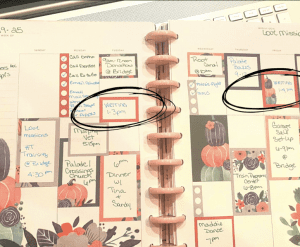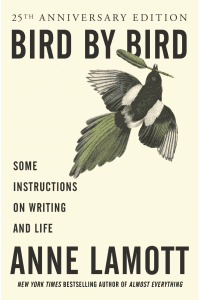I’ve been writing for as long as I can remember.
Short stories in elementary school. Poetry in middle school. Then I realized I had a knack for persuasive essays in high school and research papers in college. I love technical writing and creative writing, 70,000-word novels and 900-word flash fiction pieces. I’m not obsessed with grammar (much to my editors’ demise), but I love words, stories, and creating something with my mind.
Over the years I’ve tried to hone my craft and seek out opportunities to grow my professional presence in the writing community. I’ve published short stories online and in books, blogged for a variety of companies and organization, and began to pursue this dream of someday writing a novel of my own.
Then it happened!
Last year I participated in NaNoWriMo and wrote over 70,000 words in twenty-two days. I highly recommend this writing movement for others like me who need a bit of accountability and a sense of looming deadlines to properly motivate us into action. That one novel has grown into plans for a series of four books and the quest for an agent and publisher.
Writing isn’t for the faint at heart. Rejection feels so personal, and it can’t be avoided. Our work often brings out confidence, insecurity, anger, and joy… all in the same paragraph, leaving us emotionally exhausted and vulnerable.
But for those of us who know deep down we have words that must be shared with the world, I offer you five resources for aspiring authors to help you on this crazy amazing journey.
Professional Writing Communities
Despite a great passion for the process, many writers find themselves lonely once they’ve begun pursuing their dream. But as the great Pablo Picasso once said, “Without great solitude, no serious work is possible.” While most of a writer’s time is spent alone, stringing together words they hope will elicit strong emotions from their readers, it’s also important for writers to find a group of contemporaries to do this writing life with.
Writing communities come in all shapes and sizes and are available for all genres. Whether an international organization or a local group that meets at a nearby coffee house, writing groups are instrumental in helping a writer grow as an artist and as an entrepreneur.
I’m personally a member of three such groups. But today I want to showcase Hope*Writers, a beautiful and diverse writing community that focuses on helping its members write words that bring hope to others. Hope*Writers offers smaller Hope*Circles where members can connect with other writers of their genre, preferred publishing style, stage of writing, and so on.
What I love most about Hope*Writers is that their website offers a quiz for authors to assess what stage of writing they are in; then, they offer a vast library of teaching videos to help writers accelerate to the next level. Most of what I have learned about writing, story-telling, publishing, and growing an online presence has been through these invaluable teachings.
Writing Software
While it’s true you can write a novel in Microsoft Word (or on a pad of paper, if you’re super old-school), having a comprehensive writing program certainly has its perks. Especially for those of us who prefer plotting out work rather than flying by the seat of our pants (plotters vs pantsers).
When I began my first novel, I found it hard to keep my thoughts and research organized in a way that made sense to me. I had a notebook of ideas, timelines, and outlines. I had a file saved on my computer with inspiration pictures and a bookmarked list of websites for research. Then there were pamphlets, booklets, and other odds and ends I’d picked up along the way. I wasn’t sure how to shuffle through the pile of information and inspiration without getting frustrated and/or sidetracked.
Then I found Scrivener.
A quick Google search will take you to a long list of quality writing programs. But my Type-A, uber organized self fell in love with both the simplicity and complexity of Scrivener. The beauty of this program is that it is exactly whatever the writer needs it to be. Their tagline says it best: See the Forest OR the Trees.
In Scrivener, writers can see both the big picture as well as the details. Research can be stored in files which can be viewed in a split screen whiled writing each chapter. Outline templates help writers plot their stories, and virtual index cards make it easy to keep thoughts organized and rearranged on the fly. This software is perfect for organizing multiple projects for both aspiring authors and professionals, and I cannot recommend it enough.
Books
They say the best way to become a good writer is to first become a good reader. The more books you read in the genre you wish to write, the better your writing will be. It’s also not a bad idea to pick up a few books that will not only inspire you but will instruct you on the finer points of being an author.
One of the most highly recommended books on this subject is Bird by Bird: Some Instructions on Writing and Life by Anne Lamott. She tackles many issues that other books don’t like as dealing with writer insomnia (it’s a real thing) as well as perfectionism. Non-fiction authors might also benefit from Thinking Like Your Editor: How to Write Great Serious Nonfiction and Get it Published by Susan Rabiner and Alfred Fortunato with its practical tips for landing a great book deal.
Writing Prompts
One way to stretch yourself as a writer is to follow a daily writing prompt. Books, websites, Facebook groups, and blogs offer daily story starters, questions, and other ideas to get you writing. Whether you spend five minutes or an hour on your daily prompt, you’ll soon find you’ve leveled up your creative game; maybe you’ll even stumble across a new genre or writing style that you’ve never considered.
Personally, I love Reedsy prompts. Pick a random prompt from their list, or submit your writing into their weekly contest for an opportunity to win $250. I also enjoy finding random pictures online and writing a short scene inspired by the photo (you can find examples of my flash fiction on my blog).

Creative Scheduling
One of the most important things you can do as a writer is to write every day. I know it’s hard to fit writing into your schedule every day (I have five kids of my own, I get it), but the advantages are innumerable. If you’re serious about pursuing this passion, you owe it to yourself to take every opportunity to become better. Make daily writing prompts a part of your morning routine or something you do while the kids are at dance class.
But even more importantly, I’ve found it critical to schedule big blocks of writing time that I will protect the same way I would protect time set aside for a doctor’s appointment or fieldtrip. It usually takes me several minutes to review my writing and get inspired before I’m able to start producing more quality words, but once that flow gets going, it’s hard to stop.
When can you write? Is it during naptime? Before the kids get up? After they’re in bed for the night? Find a time that works for you and your family and then commit to protecting that time as much as you can.
If becoming an author is a serious goal, share your heart with your friends and family and enlist their support. Can you trade babysitting time with a friend to ensure you have two hours of writing time each week? Can you make crock pot meals occasionally to free up time to write while the kids are doing their homework? It may take some trial-and-error and a great deal of creativity to find a writing schedule that works, but you can do it! You’re a military mama, and we are famous for our determination, dedication, and creative problem-solving.
















I’m going to check out Hope Writers! I did Nano last year and then got sidetracked (by life). Can’t wait to do it again this year! Thanks for these suggestions!
Comments are closed.